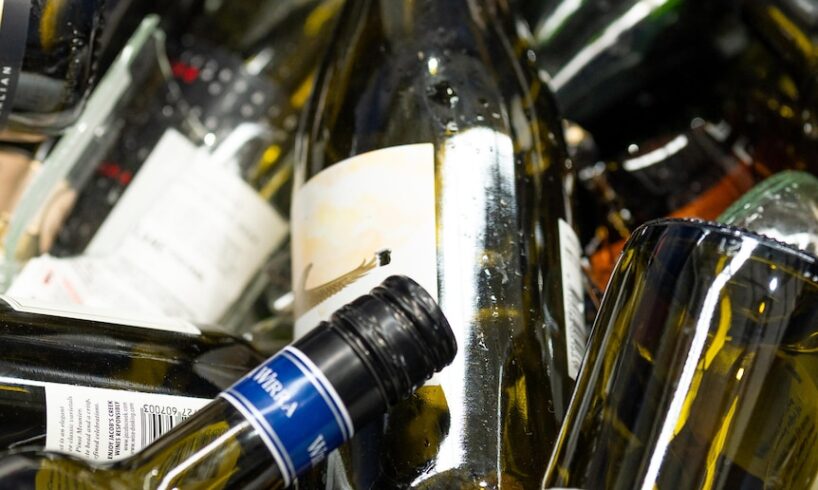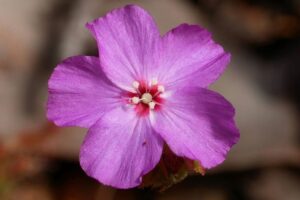
Wine and spirit bottles will be included in container and deposit schemes in New South Wales and South Australia by late 2027, boosting recycling efforts in both states.
The expanded scheme will also include other larger drink containers, such as cordial and juice concentrate containers, and larger containers of flavoured milks and fruit and vegetable juice.
Plain milk and health tonic containers will not be included in the scheme.
The state governments expect the scheme’s expansion will lead to an extra half a billion beverage containers being saved from landfill across both states in exchange for cash each year.
South Australian Premier Peter Malinauskas said it was time to “take the next step” and expand the 10-cent deposit schemes.
“Ultimately, this is going to be a better outcome both for consumers and also those who are dedicated to making sure that they are having a positive environmental impact when they choose to recycle, which is most people,” he said.
SA and NSW will expand container deposit schemes to include wine and spirit bottles. (ABC News: Che Chorley)
He said while council bin collections around SA were “progressive and convenient in nature”, only about 11 per cent of the nearly 36,000 tonnes of glass containers collected in council bins were recycled “in a productive way”.
“When you put your wine or spirit bottle into your recycling bin that the council picks up … those glasses, those bottles don’t necessarily get recycled in the rate that you would anticipate,” he said.
The scheme will continue to offer 10 cents per container and is not expected to be fully implemented until late 2027, to allow the wine and spirit industries, along with collection points, to prepare.
The change has already been implemented in Queensland, while Western Australia has committed to expanding its scheme.
The Northern Territory has also recently announced it would bring in legislation to expand its scheme.
SA Environment Minister Susan Close says glass is a completely recyclable material. (ABC News)
SA Environment Minister Susan Close said glass was “an incredible material” capable of being “completely recycled, unlike most materials that degrade over time”.
“If you keep glass separate from contamination, whether that be cardboard or bits of paper or plastic, if you keep it separate, it can be reused to create a bottle again,” she said.
South Australia was the first to introduce container deposit legislation in 1977 and the expansion will coincide with the 50th anniversary of the scheme.
SA’s recycling deposit scheme originally began to tackle litter issues. (ABC News: Che Chorley)
Ms Close said the scheme — which was originally established to tackle litter issues — targets drinks typically consumed outside the home, such as flavoured milk bottles and soft-drink cans.
She said the spirit industry, along with the wine industry — which had been “more sensitive” to the change — would be consulted and involved in the scheme’s design.
The announcement follows the SA government’s ban on fish-shaped plastic soy sauce containers from September 1, as the state continues to phase out single-use plastics.
NSW Environment Minister Penny Sharpe says the scheme’s expansion will be beneficial. (ABC News: Nandini Dhir)
New South Wales Environment Minister Penny Sharpe said the scheme was “great for our recycling industry” and consumers.
“By expanding to include more types of beverages, it’s estimated that at least 27,000 tonnes of materials will be saved from landfill each year in NSW,” she said.
But she said it was important people did not try and take their wine bottles to a Return and Earn machine until the scheme was implemented.
“We’re working with industry to ensure a smooth transition and to ensure return systems will be ready to handle the new containers by mid-2027,” she said.
Wine industry expresses ‘deep disappointment’
Industry peak body, Australian Grape and Wine, said in a statement the sector was “deeply disappointed” by the decision.
“This decision couldn’t come at a worse time for our industry,” said chief executive Lee McLean.
Lee McLean is the chief executive of Australian Grape and Wine. (ABC NEWS: Matt Roberts)
“Australian winemakers are already grappling with global oversupply, rising production costs, and the ongoing recovery from the loss of the China export market.
“Adding another $85 million in costs nationally through CDS expansion will only compound these pressures.”
Australian Grape and Wine said it was calling on governments to allow adequate time for businesses to adapt, a national approach, and exemptions or cost-impact relief for small producers to ease the burden.





